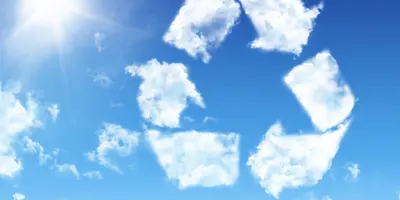- Leaves
- Grass Clippings
- Small sticks
- Kitchen scraps
- Used potting soil
- Paper and Cardboard
- Garden Debris
- Hay and Straw
- Natural Fibers
Compost and Yard Waste
Turn Your Yard Waste into Useful Products!
Let’s look at grass clippings, leaves, and weeds from our lawns as opportunities — not waste! Instead of relying on businesses to collect, compost, bag, and sell this material back to you, why not make your own compost for free? Compost can amend clay soils, improve water-holding capacity, fertilize your lawn, and help grow better vegetables.
Waukesha County Compost Collective
Please take our Home Composting Survey. You can share how you've made composting a regular habit and help us track our efforts!
Composting Dashboard
Why Compost?
- Recycle Yard and Kitchen Waste: Composting is an excellent way to recycle leaves, grass clippings, yard trimmings, and even kitchen scraps at home. Finished compost is a great organic plant food.
- Enhance Soil Health: Soils with added compost are healthier and yield healthier plants.
- Save Money: Composting can save you money by reducing the need to buy soil amendments from gardening stores.
- Manage Yard Waste: Home composting helps manage yard waste that landfills do not accept, conserving landfill space.
- Reduce Landfill Waste: Approximately 30% of garbage headed to landfills is food waste, much of which is compostable. By composting, you reduce the amount of waste sent to landfills. Once items are placed in the trash and taken to the landfill - that is the end of their journey. There is no sorting, recovery, reuse or purpose. It is a common misconception that items decompose quickly in a landfill.
To learn more about food waste go the DNR's page on Reducing Food Waste at Home.
Getting Started
To start composting, you need two broad categories of materials: “Greens” and “Browns”.
- Green Materials: Rich in nitrogen, these include grass clippings and vegetable scraps.
- Brown Materials: Carbon-rich materials such as leaves and straw.
Your compost bin requires a balanced diet, just like you! Use a ratio of 2-3 parts brown material to every 1 part green material.
Steps to Compost:
- Choose Your Method: You can buy a compost bin or heap your compost into a pile. Check local ordinances for specific composting requirements in your area.
- Mix Materials: Combine green and brown materials in the proper ratio.
- Moisture: Water your compost to be as moist as a wrung-out sponge.
- Turn the Pile: While not necessary, turning your compost pile once a week can speed up the composting process and ensure it has the correct moisture level.
By composting at home, you turn waste into a valuable resource, benefiting your garden and the environment.
Looking for more information on how start composting at home? WDNR and Recycling Connections have great resources to help you get started!
Can't Compost at Home?

Contact Us
515 W. Moreland Blvd.
Room AC260
Waukesha, WI 53188 
262-896-8300(press "4" to reach recycling)
email
Office hours of operation:
Monday - Friday
8:00am - 4:30pm















